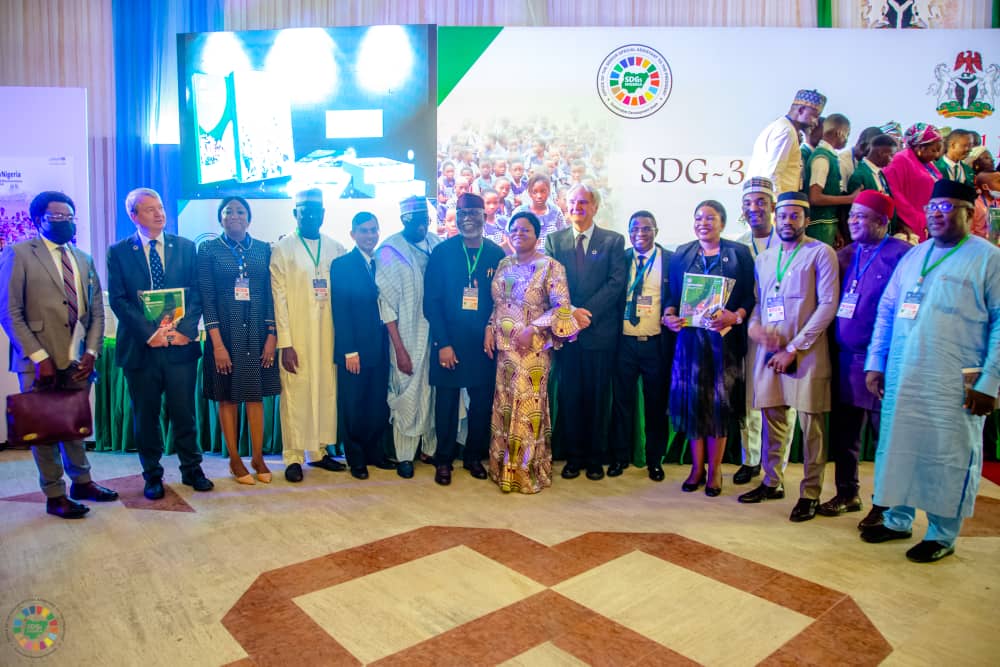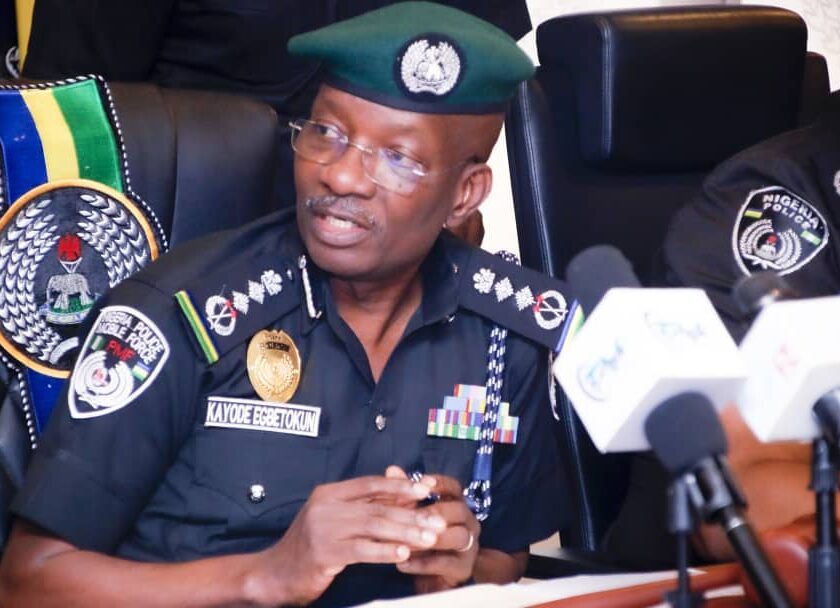Sustainable Development Goals SDGs in Nigeria is breaking records in all fronts, particularly it’s global agenda of prioritizing 17 goals towards bridging social , economic stratification, and also achieving the 2020-2030 agenda popularly called known as ‘decade of action.’
Event in the recent times showed the SDGs handlers under Princess Adejoke Orelope-Adefulire, SSA to the President on the program in the last six years had stepped up it’s activities along with rendering stewardship geared towards ratifying the social gap in Nigeria.
Inspite economic recession, unemployment and job losses in the country , arising from the activities of Endsars, and world ravaged pandemic of COVID and subsequent lockdown of world economies, SDGs activities was re-adjusted and tailored towards making greater impact towards making higher mark of it’s programs in line with UN goals and domesticated template.
The record breaking alignment of it’s statistical data, the first in Africa to reconcile it’s National Statistical System NSS in collaboration and coordination with National Board of Statistics NBS in December, 2021 that had gave more credibility not only to government programs and activities in SDGs, but for other government departments, agencies and ministries to key into such laudable and record keeping, including the private sector through the Private Sector Advisory Group PSAG, the major stakeholders in SDGs programs .
The record breaking alignment and realignment of the National Statistical System NSS and data paved way to more articulated and fair judgement of projects, it’s locations, need assessment and the desire of the people to utilise such laudable projects, rather than haphazardly citing projects without due diligence.
This was greatly assisted through the constant Voluntary National Review VNR carried out by SDGs in Nigeria to pave way for full domestication of it’s activities at national and sub national levels.
The NSS template no doubt conform with the provision and requirements of Nigeria’s National Development Plans NDP 2021-2025 and the decade of action 2020-2030 geared towards ressolving social protection in accordance with the goals.
Aside the great achievements of the NSS, the SDGs went further to reeled out it’s programs in the last six years on the utilisation of it’s Conditional Grant Scheme CGS to states across the country including the FCT in the area of social services ranging from Education, health and water sanitation as well pverty reduction/ empowerment/skill development.
The epoch making occasion held at the banquet hall of the Presidential villa on July 28, exposed the determination of the SDGs handlers in Nigeria to do more when giving the opportunity before Nigerian leaders and the international communities/ partners.
The SSA SDGs Nigeria, Princess Adejoke Orelope-Adefulire took time to divulge the records of the programs embarked with relations to CGS from states to states including the FCT that had changed the face of social services in Nigeria.
During the occasion, SDGs Nigeria confirmed the utilisation of 24.5B under it’s Conditional Grant Scheme CGS program of interventions across 24 states and FCT including the entire 36 states .
She stated with such huge interventions both at national and sub national level, it had reduced to the barest minimum the incidences of maternal mortality rates, out of school children, and the effect of water borne diseases across the country in recent times along with gainful engagements.
The complimentary and concerted efforts of SDGs towards ressolving out of job situations through job losses, high unemployment rates , creating gainful engagements for the unskilled Nigerians due to the effects of economic downturn, health emergency of COVID and lockdown, the setting up of empowerment,skill acquisition, capacity building and development had assisted greatly and reduced to the barest minimum the effects of the global situations.
Since the 2020-2030 became a working tool in accordance with UN general assembly resolution and decision in 2015, SDGs in Nigeria had worked tirelessly towards the success of it’s 17 goals over the years, particularly on all it’s programs, hence the launch of the independent evaluation reports on August 25 at the seat of government with the presence of the international communities, other stakeholders some of it’s focal programs with direct social impact towards ressolving the critical conditions and it’s interventions on Goal 3, 4, with Health and well being of Nigerians, quality Education for all as we match towards 2020-2030 decade of action.
The independent evaluation reports, first of it’s kind in African sub-region gave alot of encouragement to both Nigerian government, the critical stakeholders and the international communities an opportunity to indepthly access the effects of the review in the last few years of it’s inception.
The first global independent evaluation reports of SDGs on Health and Education from the African continent was a point of convergence between Nigerian leaders, the UN Deputy Secretary General, the international communities, Private Sector Advisory Group PSAG, a major stakeholder and the CSO’s among many others that yelled for the giant strides of SDGs in Nigeria.
Impressed by the performance of SDGs in Nigeria in the last six years, Nigeria’s government advocated for a policy thrust that will guarantee unimpeded funding of both Health and Education as one of the cardinal goals of the program in Nigeria.
With robust health and wellbeing, along with quality education for the populace, the precarious situations of the economy and health emergencies that occasioned many Nigerian children out of school, job losses will be reduced to the barest minimum.
it became imperative that with the efforts at the national level through SDGs, sub national like the state and local government’s efforts in that direction will bring to a halt the negative effects on our health, education system in Nigeria.
With government efforts both at the three tiers and global agenda interventions, the recurring decimal of unresolved health challenges, lack of qualitative education will be fully attended.
SDGs in Nigeria under the leadership of Princess Adejoke Orelope-Adefulire SSA to the President was already on the same page with government agencies like the Universal Basic Education Commission UBEC, and National Health insurance Authority NHIA to bring to par on the lingering issues that boardered on the two flagship programs in the country.
With the independent evaluation reports by SDGs through provision of necessary documents, materials and equipment will drive the health and education profile of Nigeria and Nigerians towards the 21st century.
All hands must be on deck to continue to support SDGs in Nigeria to drive the continuity template of the handlers not only to achieving the decade of action program, but towards complete emancipation and detachment from any distraction towards achieving the goals, the basic necessities of life.
ABUBAKAR YUSUF writes from Abuja, He can be reached via; yus.abubakar3@gmail.com.





